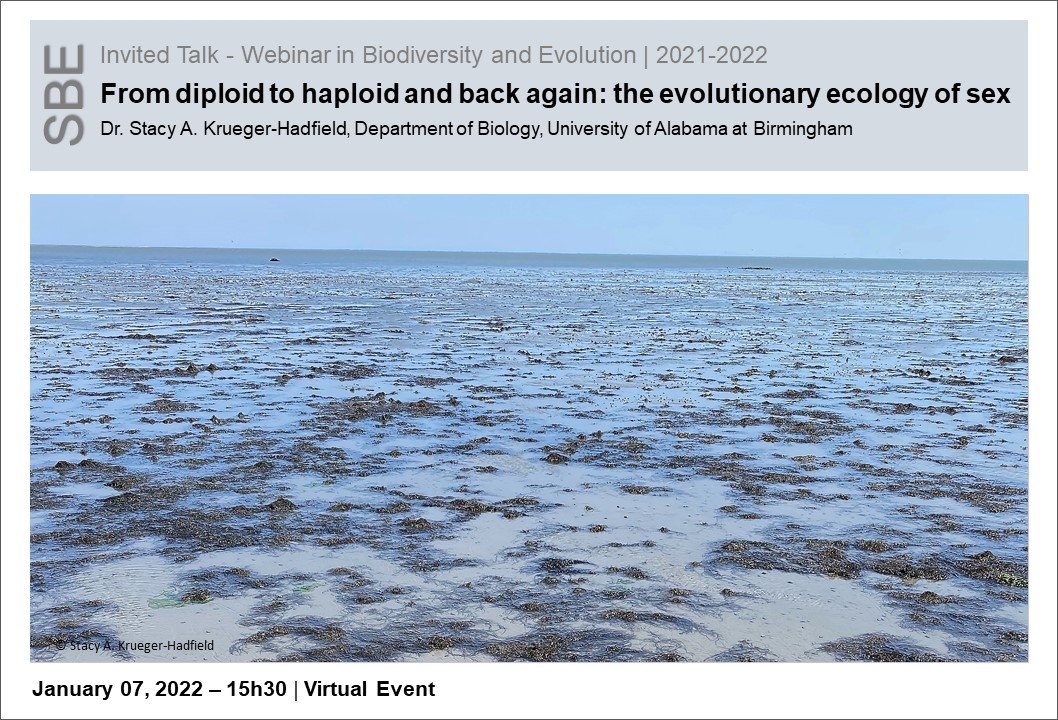From diploid to haploid and back again: the evolutionary ecology of sex
07 Jan 2022 - Dr. Stacy A. Krueger-Hadfield, Department of Biology, University of Alabama at Birmingham | 15h30

INVITED TALK - WEBINAR IN BIODIVERSITY AND EVOLUTION
All sexual eukaryotes alternate between two ploidy levels, but display incredible variation in the duration of these stages. Genetic models suggest haploid-diploid life cycles are transitory states on the way to diploidy or haploidy. The diversity of lineages maintaining these complex life cycles suggests they are not transitory states, but evolutionarily stable. I will discuss our work on testing the niche differentiation hypothesis as well as reproductive system variation across macroalgae. I will focus on the widespread, non-native, red macroalga Gracilaria vermiculophylla. Almost all soft-substratum habitats are dominated by tetrasporophytes, despite the likelihood that all life cycle stages are introduced to these habitats together. The combined stress of high temperature and high salinity reduced growth and increased bleaching risk. Female gametophytes and tetrasporophytes tolerated these conditions better than males. Less stressful environments led to higher tissue quality (e.g., increased protein, carbon, and pigments) which interacted with phase-specific differences. Tetrasporophytic phenotypes may be more robust, but differences are subtle and may not be captured accurately if the wrong phenotypes are investigated.
Dr. Krueger-Hadfield is an Assistant Professor at the University of Alabama at Birmingham. She studies the evolution of life cycles and reproductive systems with a focus on algae and marine invertebrates. Currently, her lab is investigating the invasion history of the red alga Gracilaria vermiculophylla and the sea anemone Diadumene lineate as well as several green and red algae in Australia and Hawai'i. In addition to marine work, her lab is exploring the population dynamics of freshwater red macroalgae.
[Host: Cátia Monteiro, Marine Ecology, Diversity and Change - MarChange]